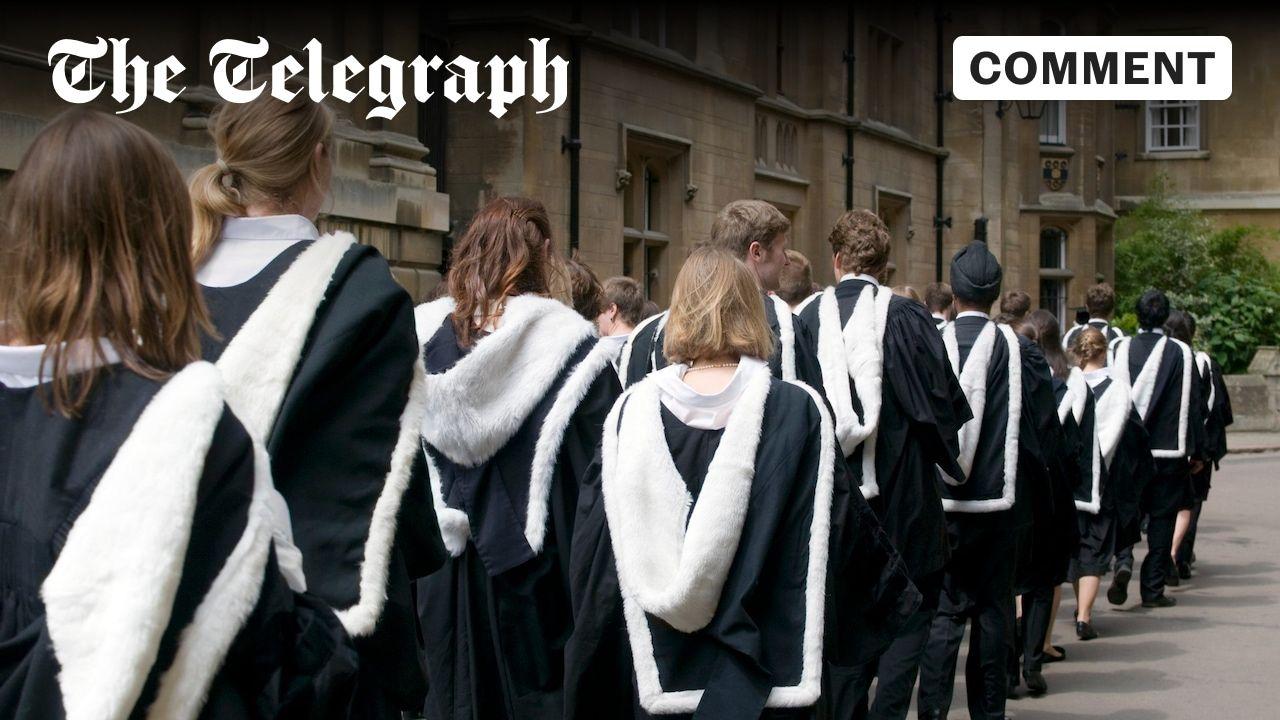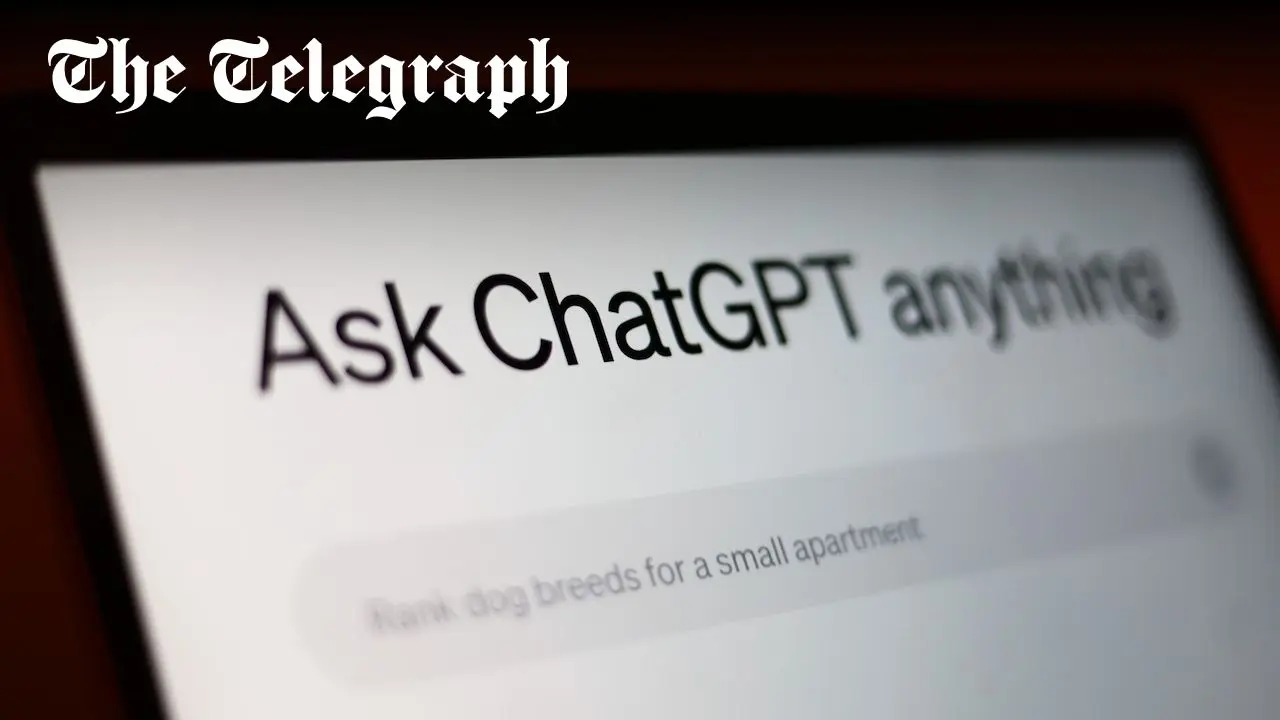AI and Economic Shifts Reshape UK Graduate Job Market, Creating Unprecedented Challenges
5 Sources
5 Sources
[1]
UK graduate job openings at lowest level since 2018
Job openings for UK graduates are at their lowest level since 2018 as employers hold off hiring and seek to cut costs by using AI, according to new data. Indeed, the job search site, said the number of roles advertised for recent graduates was 33 per cent lower than a year ago, and had fallen 12 per cent as a share of all job postings. The wider labour market has continued to weaken since tax and minimum wage changes introduced in April pushed up the costs of employment. Indeed's figures for overall job postings in mid June were 5 per cent lower than at the end of March. This makes the UK an outlier compared with the US and European peers, Indeed said, as it is now the only economy with fewer job openings available than before the pandemic. The figures are likely to reinforce worries among UK policymakers that the jobs market could be on the verge of a sharp downturn, rather than the gradual softening the Bank of England expects and thinks is needed to relieve wage pressures and bring inflation back to target. Dave Ramsden, a BoE deputy governor, said at an event in London on Tuesday that he voted to cut interest rates last week -- dissenting from the majority decision to leave them unchanged -- because of the "cumulative evidence of a continued material loosening in the labour market". So far, this has been a gradual process, he said, but he pointed to a rise in online searches for "redundancy" and a drop-off in the rate of unemployed people finding work as potential warning signs of a "more substantial weakening". Indeed's figures show job postings are now 21 per cent below their pre-pandemic baseline -- which Ramsden referred to as a time when the jobs market was "broadly in balance". Jack Kennedy, economist at Indeed's Hiring Lab, said the figures still pointed to a "gradual softening rather than a nosedive" in the overall labour market, in contrast with gloomy predictions at the start of the year about the impact of the tax and minimum wage changes. But anyone looking for their first job faced a tough environment, he added, with employers showing "a reluctance to hire new staff and an inclination to hang on to existing ones." Kennedy said the figures also raised the question of how far employers were now accelerating the use of AI to perform tasks that had previously been given to entry level workers -- with rising labour costs spurring them to explore ways to automate these early career roles. Although April's policy changes hit low wage sectors such as retail and hospitality hardest, the deepest slump in hiring has been in professional occupations, Kennedy said. Indeed's figures show job postings are now 27 per cent below their pre-pandemic level in human resources and project management; 37 per cent lower in marketing and 48 per cent lower in media and communications.
[2]
UK graduates facing worst job market since 2018 amid rise of AI, says Indeed
Job search site says number of roles advertised for recent graduates is at lowest level in seven years University graduates in the UK are facing the toughest job market since 2018 as employers pause hiring and use AI to cut costs, figures suggest. The number of roles advertised for recent graduates is down 33% compared with last year and is at the lowest level in seven years, according to the job search site Indeed. Overall job postings as of mid-June were 5% lower compared with the end of March, as the broader job market struggles in the face of higher taxes for employers and minimum wage changes introduced from April. It means the UK is an outlier compared with the US and its peers in Europe, as it is the only economy with fewer job openings available than before the pandemic, according to the data. Jack Kennedy, a senior economist at Indeed, said the figures underlined a "continued gradual softening rather than a nosedive" in the labour market. "Despite the UK labour market holding out overall, new entrants like graduates face a challenging time in securing a first rung on the ladder," Kennedy said. "This signals a wider landscape of employers holding on to existing staff, while some observers contend that entry-level roles in professional occupations are particularly exposed to AI displacement." There are varying forecasts about the impact of AI on the labour market. Research from the Organisation for Economic Co-operation and Development has found the technology could disrupt "white-collar" professions such as lawyers, doctors and software engineers. The International Monetary Fund has estimated that 60% of jobs in advanced economies such as the US and UK are exposed to AI, and that half of these jobs may be negatively affected. The Tony Blair Institute has said potential UK job losses in the private sector could be mitigated by AI creating new roles. This month the technology secretary, Peter Kyle, called on workers and businesses to "act now" on getting to grips with AI, or risk being left behind. He said: "I think most people are approaching this with trepidation. Once they start [using AI], it turns to exhilaration, because it is a lot more straightforward than people realise, and it is far more rewarding than people expect. "There's no one in employment at the moment that is incapable of gaining the skills that will be needed in the economy in the next five years ... That is the optimistic way of saying: act now, and you will thrive into the future. Don't, and I think that some people will be left behind. And that's what worries me the most."
[3]
People in the UK: how is AI changing job-seeking for university graduates?
As opportunities fall, we want to hear from graduates, parents and recruiters on their experiences of the job-seeking landscape University graduates in the UK are facing the toughest job market since 2018, as employers pause hiring and use AI to cut costs, according to data from Indeed. The number of roles advertised for recent graduates is down 33% compared with last year and is at the lowest level in seven years, according to the job search site. It comes as the UK's claimant count, which measures the number of people claiming unemployment-related benefits, increased to 1.7m people in May, 107,000 more than in April 2024. We want to hear from graduates, parents and recruiters on this issue. How is artificial intelligence affecting the graduate hiring landscape? In what ways is AI changing the nature of specific job roles? If you're a upcoming or recent graduate, how have you found job-seeking? If you're a recruiter, how has your organisation changed what it looks for in new employees?
[4]
Labour has made this the worst summer ever to graduate
"This literally feels like an alternate reality, how have we just accepted that you need to apply for hundreds upon hundreds of jobs to get an entry-level position," one person wrote on Reddit on Friday. "[There] doesn't seem to be a big difference between most graduates. What is going on?" For a start, grunt jobs are rapidly being hoovered up by AI. UK entry-level jobs are down by nearly a third since the release of ChatGPT in 2022, data released today will show, with some of Britain's biggest graduate employers - notably the "big four" accountants - slashing graduate recruitment programmes because AI is doing the job instead. Dario Amodei, the boss of AI firm Anthropic, recently predicted that the technology he's betting his career on could wipe out half of all entry-level jobs in white-collar professions such as law, consulting and finance within five years. That might sound far-fetched, but the erasure of these junior jobs is already happening as technology grows smarter. Even frustrated job seekers are complaining about AI while using ChatGPT to fire out hundreds of CVs in quick succession and with little thought. "It's the Tinder-fication of the job market, when you have theoretically infinite applicants," writes one person on Reddit. That is without taking into account some UK-specific problems. The Government's decision to increase employer costs and overhaul workers' rights has taken a further sledgehammer to entry-level roles. Many businesses have frozen hiring following Rachel Reeves's Budget tax raid, which disproportionately affects young and low-paid workers after she raised employers' National Insurance contributions.
[5]
Britain's graduates 'left on the scrapheap' as entry-level jobs disappear
"I don't really care if an AI tool is going through the applications," Schuller says. "I think the bigger problem that it reflects is that there's not enough opportunities out there and that there are too many people in the first place applying for too few things." As well as transforming hiring, AI is also fuelling drops in job openings within industries where tasks can be automated. It may help to explain a 62pc drop in graduate roles in HR over the last year and a 44pc slump in entry-level jobs in accounting. "Big four" accountants KPMG, Deloitte, PwC and EY are hiring hundreds fewer grads than they were a few years ago as they use AI to complete the kind of "grunt" work that would typically be done by junior staff. Many businesses have also put a freeze on hiring or are cutting back jobs following Rachel Reeves's tax raid in the autumn Budget, which increased the cost of employing staff by raising employers' National Insurance contributions. Meanwhile, Stephen Isherwood, of the Institute of Student Employers, says declines in industries such as technology reflected the fact "they over recruited significantly after the pandemic and there's still a retrenchment from that". 'Really, really disheartening' It's not just grads feeling the squeeze. The latest figures from Indeed show that vacancies across all levels of seniority and industry are now at the lowest level since the pandemic. A cooling labour market has meant that some graduates find themselves competing against more experienced jobseekers who have been forced to apply for junior or entry-level roles in an effort to find work. Many university leavers find themselves in a catch-22 as they are unable to get the experience they need to compete against these kinds of candidates. "In all likelihood it's unfortunately probably going to remain quite a challenging picture for graduates for the foreseeable," says Jack Kennedy, at Indeed. Simran Abdullatif graduated with a first-class degree in Criminology and Sociology from the University of Kent last year. Since then, the 23-year-old has found the job search "really, really disheartening". "Once I started looking seriously, there was nothing. Honestly, there was nothing," she says. The aspiring solicitor has cast her net wide in her search for an entry-level role. After sending out over 100 job applications for vacancies ranging from law schemes to secretarial roles, Ms Abdullatif hasn't been invited for a single interview. "I've come to realise how tough just finding a job is. I've honestly even been applying to Tesco, Morrisons, Lidl and even they aren't getting back to me," she says. "I keep saying to my mum: 'what was the point of me studying so hard to get a first-class for that first-class to not even be able to do anything for me?' You've studied for so long and you don't see the fruits of your labour. "Maybe I need to get more experience under my belt, but then no one wants to give you the experience." Doyle is similarly struggling to know where to go from here. Despite all the applications and assessment days, he has had little in the way of constructive criticism about how to improve his changes. "I think I've only had proper feedback from one of them, but even for the rejection emails that I get, it just sounds like, 'oh, we've decided to go with other candidates progressing forward'," he says.
Share
Share
Copy Link
UK graduate job openings hit a seven-year low as employers pause hiring and turn to AI, creating a challenging landscape for new entrants to the workforce amidst broader economic pressures.
UK Graduate Job Market Hits Seven-Year Low
The UK graduate job market is facing its most challenging period since 2018, with job openings for recent graduates plummeting to their lowest level in seven years. According to data from Indeed, a leading job search site, the number of roles advertised for recent graduates has fallen by 33% compared to the previous year
1
. This significant decline has created an increasingly competitive environment for new entrants to the workforce, with many graduates struggling to secure their first professional positions.
Source: FT
AI Adoption and Economic Pressures Reshape Employment Landscape
The sharp decline in graduate job openings can be attributed to a combination of factors, with the rise of artificial intelligence (AI) playing a significant role. Employers are increasingly turning to AI to perform tasks that were previously assigned to entry-level workers, particularly in professional occupations
2
. This shift is especially evident in sectors such as human resources, project management, marketing, and media and communications, where job postings have fallen by 27%, 37%, and 48% respectively compared to pre-pandemic levels.Impact on Specific Industries and Roles
The adoption of AI is having a particularly pronounced effect on certain industries. The "big four" accounting firms - KPMG, Deloitte, PwC, and EY - have significantly reduced their graduate recruitment programs as AI takes over many of the tasks traditionally performed by junior staff
4
. Similarly, the HR sector has seen a 62% drop in graduate roles over the past year, while entry-level jobs in accounting have declined by 44%5
.Broader Economic Challenges
The difficulties faced by graduates are set against a backdrop of broader economic challenges. Recent changes to tax policies and minimum wage regulations have increased the costs of employment, leading many businesses to freeze hiring or reduce their workforce
1
. These factors have contributed to making the UK an outlier among its peers, as it is now the only major economy with fewer job openings available than before the pandemic.Graduate Experiences and Concerns
The challenging job market has left many graduates feeling disillusioned and frustrated. Some report applying for hundreds of positions without success, competing against more experienced job seekers who have been forced to apply for junior roles
5
. This has created a catch-22 situation where graduates struggle to gain the experience necessary to compete effectively in the job market.
Source: The Telegraph
Related Stories
Future Outlook and Policy Implications
The current situation has raised concerns among policymakers about the potential for a sharp downturn in the job market. Dave Ramsden, a Bank of England deputy governor, has pointed to the rise in online searches for "redundancy" and a drop in the rate of unemployed people finding work as potential warning signs
1
. These developments underscore the need for adaptive policies and strategies to address the changing nature of work in an AI-driven economy.Calls for Action and Adaptation

Source: The Telegraph
In response to these challenges, there are growing calls for both individuals and businesses to adapt to the changing landscape. Peter Kyle, the technology secretary, has urged workers and businesses to "act now" on getting to grips with AI or risk being left behind
2
. This sentiment reflects the growing recognition that AI will continue to play an increasingly significant role in shaping the future of work and the skills required for success in the job market.References
Summarized by
Navi
[4]
Related Stories
AI's Impact on Entry-Level Jobs: A Growing Challenge for Recent Graduates
08 Aug 2025•Business and Economy

AI's Impact on UK Job Market: Entry-Level Positions Plummet Post-ChatGPT Launch
30 Jun 2025•Business and Economy

AI's Impact on Entry-Level Jobs: Challenges and Opportunities for Gen Z
09 Jul 2025•Business and Economy

Recent Highlights
1
ByteDance's Seedance 2.0 AI video generator triggers copyright infringement battle with Hollywood
Policy and Regulation

2
Demis Hassabis predicts AGI in 5-8 years, sees new golden era transforming medicine and science
Technology

3
Nvidia and Meta forge massive chip deal as computing power demands reshape AI infrastructure
Technology





